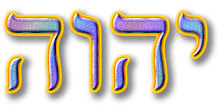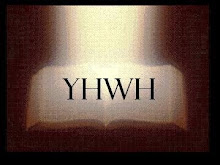
14 Adar Third Day Yom Shlee' shee
PURIM!
The Story of Purim in a Nutshell
In the third year of his reign, the King of Persia, Ahashverosh (also known as Ahasuerus and Ahashuerus) decided to have a feast. It was on the seventh day of these festivities that the King summoned his queen, Vashti, to appear before him and demonstrate her beauty for the King's officials. Vashti refused to appear. Incensed, the King asked his officers for a suitable punishment. One advisor, Memuchan, argued that Vashti should be killed for her disobedience. The King took his advice and Vashti was killed.
In the third year of his reign, the King of Persia, Ahashverosh (also known as Ahasuerus and Ahashuerus) decided to have a feast. It was on the seventh day of these festivities that the King summoned his queen, Vashti, to appear before him and demonstrate her beauty for the King's officials. Vashti refused to appear. Incensed, the King asked his officers for a suitable punishment. One advisor, Memuchan, argued that Vashti should be killed for her disobedience. The King took his advice and Vashti was killed.
As time passed the King desired a new queen. To find a suitable wife, a contest was initiated among all the eligible maidens in the kingdom. One of those was Esther, a Jewish girl. Esther, who was an orphan, had been raised by Mordechai, her uncle, after her parents' death. Mordechai instructed Esther not to divulge her Jewishness when she went to meet the king. Each day, Mordechai walked by the court and asked after his niece. Esther impressed all who met her, including the King, and she was elevated to queen. Meanwhile Mordecai, while sitting near the palace gate overheard a plot to assassinate the king. He immediately told Esther who reported it to the King in the name of Mordecai.
Years later the King elevated Haman, a descendant of Amelak, the traditional enemy of the Jews, to the position of chief advisor. Haman was a wicked and vain man who expected everyone to bow down to him. Mordechai refused to bow because Jews are to bow only before G-D. Not content to just punish Mordechai, Haman wanted to destroy the entire Jewish people in Persia. He cast lots or PURIM to determine the day of annihilation.
Haman went to the King, slandered the Jews, and convinced the King to go along with his plans. Upon learning of the plot, Mordechai tore his clothes, wore sackcloth and ashes, and walked through the city crying loudly. When Esther heard of Mordechai's display, she dispatched a messenger to discover what was troubling her relative. Mordechai recounted the details of the evil decree and instructed Esther to intercede on the Jews behalf. Esther agreed to appear before the King unannounced even though anyone who came to the King uninvited risked losing their life. She, therefore, instructed Mordechai to organize a three-day fast for all the Jews on her behalf.
After completing the three-day fast, Esther entered the king's inner court dressed in her most royal garb. The King granted her an audience promising her that virtually anything she would ask would be granted. Esther replied that she wished to invite the King and Haman to a banquet on that day. After the feast Esther asked the King and Haman to return for another banquet the following night. Haman left the banquet consumed with self- importance and pride, but these feelings were turned to anger when he saw Mordechai sitting at the gate of the King's palace and paying Haman no mind. Haman went home fretting over the impudent Mordecai. His wife, Zeresh, advised him to construct a gallows and ask the King that Mordecai be hanged. Haman joyously acted upon the suggestion.
That night, the King discovered that Mordechai had never been rewarded for saving him from the assassination plot of two servants. When Haman appeared in the court, the King decided that his trusted servant should determine Mordechai's compensation. Haman, intending to obtain the King's permission to hang Mordechai, unwittingly answered the King's questions. The King asked Haman"What should be done for the man the King wishes to reward?" Haman, believing that Ahashverosh intended to reward him, replied that the honoree should be dressed in royal clothing, ride upon a royal horse. And be led through the city streets by an official proclaiming "This is what is done to the man the King wishes to honor".
Ahashverosh agreed and instructed Haman to do what he had declared for Mordecai. Crestfallen, Haman followed the King's orders and dressed Mordecai in royal clothing and Haman led Mordecai around the city on a fine horse.
At Esther's second banquet Haman's downfall continued. Esther revealed Haman's villainous plot and the fact that she was Jewish. She asked the King to "grant me my soul and my people." Ahashverosh consumed with anger ordered that Haman be hanged on the gallows intended for Mordechai. The King elevated Mordechai to a position of great influence and allowed him to issue edicts permitting the Jews to fight their enemies.
On the thirteenth and fourteenth of Adar the Jews won tremendous victories and were saved from the threat of total annihilation.
Ever since, Jews have observed Purim. The day before Purim is a day of fasting, in memory of Esther's fast. The fast is then followed by two days of dancing, merrymaking, feasting and gladness where Jews celebrate by telling this story, drinking, giving gifts to the poor, and food to each other.










No comments:
Post a Comment